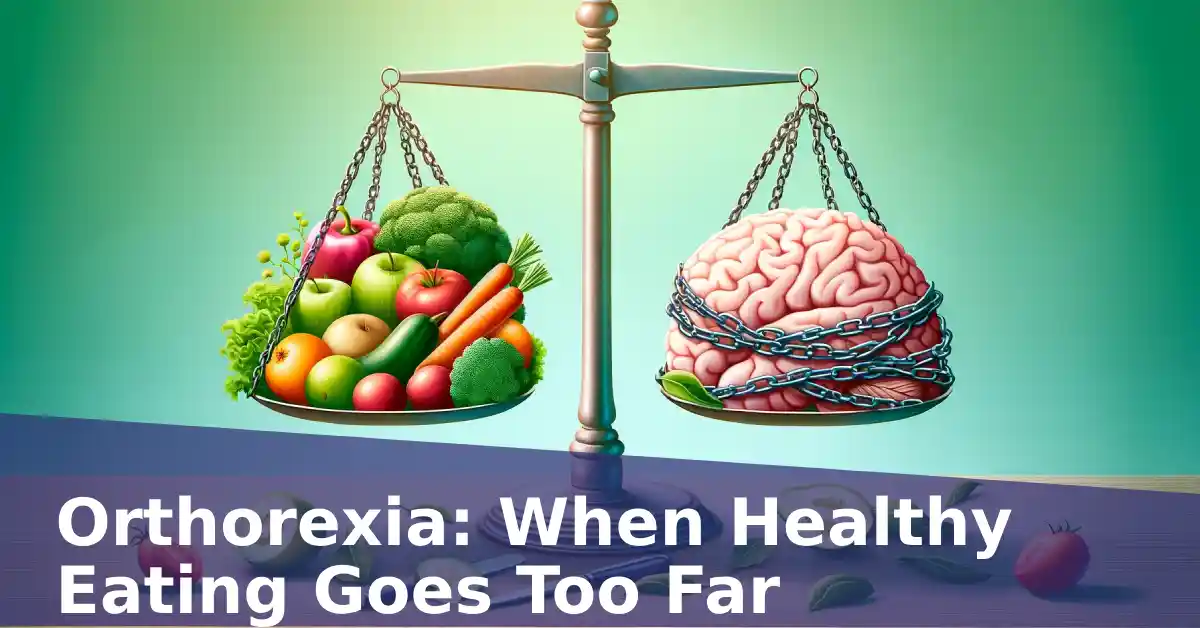Have you ever heard of the term orthorexia? It’s when people become so obsessed with eating “pure” or “perfect” food that it starts to harm their health.
Dr. Steven Bratman first talked about this problem in 1997. It’s different from other eating issues because it’s not about how much you eat, but about being overly worried about food quality.
Orthorexia is a mental prison.
What is orthorexia?
Orthorexia starts out with good intentions—trying to eat healthy. But it turns into a strict and unhealthy obsession with only eating foods that are organic, unprocessed, and “clean.”
While it’s great to know what’s in your food, orthorexia takes this to an extreme level. It can lead to not getting enough nutrients, feeling isolated, and having mental health struggles.
That’s the opposite of the point of eating healthy.
Real Stories Highlight the Issue
Our review includes real-life examples that underscore orthorexia’s impact.
One case involves a 28-year-old woman whose strict vegetarian diet, initially adopted for health, led to severe malnutrition and isolation.
These stories echo the experiences shared by some of our readers, emphasizing the fine line between healthy eating and harmful obsession.
How Common is Orthorexia?
Studies in the literature review report varying prevalence rates, from as low as 6% in some groups to a staggering 88.7% among certain professionals, like nutritionists.
These figures illustrate that orthorexia is a growing concern, especially for those very interested in health.
Orthorexia is more widespread than previously thought, which highlights the need for greater awareness and understanding of this condition.
The Fine Line Between Healthy and Obsessive
As the literature points out, it’s easy to go from being health-conscious to developing orthorexia.
A well-known case is that of blogger Jordan Younger, whose experience with orthorexia shows how influences like social media can contribute to this unhealthy obsession.
Spotting and Helping with Orthorexia
If someone is really strict about their diet, gets upset when they can’t eat certain foods, and spends too much time worrying about food, they might be dealing with orthorexia.
The literature review helps identify signs of orthorexia, such as extreme diet rigidity, distress over food choices, and a feeling of superiority with their diet. Professional guidance from dietitians and therapists, including approaches like cognitive-behavioral therapy, is essential in addressing orthorexia.
Getting help from nutrition experts and therapists is important. They can work on understanding why someone feels this way about food and how to get better.
Conclusion: Balance is Key
The most important thing is balance. Being healthy isn’t just about what you eat; it’s also about being happy and not letting food control your life.
Orthorexia is a reminder that while pursuing health is good, it should not come at the cost of overall happiness and life quality.
Orthorexia shows us that too much of a good thing can be bad. We need more research to understand it better and help people find a happy middle ground with food.







